Realtek Ameba Board
This is the Ameba Board from Realtek, an IoT solution inside the familiar Arduino form factor. The Ameba Board supports WiFi, GPIO, NFC, I2C, UART, SPI, PWM and ADC operations, and can support Ethernet via Arduino-compatible headers, providing you a great IoT platform for your next project. Thanks to the Ameba Board's multiple interface options, you will be able to connect with multiple different components like switches, sensors, LEDs, and more. With the ability to attach Arduino form-factor shields, the Ameba Board provides added functionality to IoT applications!
The Realtek Ameba Board is controlled by the 32-bit RTL8195AM ARM Cortex M3, which includes 802.11 b/g/n WiFi connectivity, hardware SSL, 2MB SDRAM and 512KB SRAM. All collected data from any peripheral part you attach to the Ameba Board can be uploaded over WiFi and utilized by any application you can imagine.
- 32-bit ARM Cortex M3 (166MHz)
- 1MB ROM, 2MB SDRAM and 512KB SRAM
- Integrated with 802.11 b/g/n 1x1 WiFi
- NFC Tag with Read/Write Function
- 10/100 Ethernet MII/ RMII/RGMII Interface
- USB OTG
- SDIO Device/SD Card Controller
- Hardware SSL Engine
- Maximum 30 GPIOs
- 2 SPI Interfaces support both master and slave mode
- 3 UART Interfaces, including 2 HS-UART and one log UART
- 4 I2C Interfaces support both master and slave mode
- 2 I2S/PCM Interfaces support both master and slave mode
- 4 PWM Interfaces
- 2 ADC Interfaces
- 1 DAC Interface
Realtek Ameba Board Product Help and Resources
Errors in Arduino when compiling?
If you get an error that looks similar to "{runtime.tools.ameba_tools.path}/postbuild_img2_arduino_windows.exe": file does not exist
Try uninstalling the Ameba board from Ardunio, then reinstalling. Make sure to chose version number 2.0.2 from the "Select version" drop down menu. That seems to clear this issue up.
Core Skill: Programming
If a board needs code or communicates somehow, you're going to need to know how to program or interface with it. The programming skill is all about communication and code.
Skill Level: Rookie - You will need a better fundamental understand of what code is, and how it works. You will be using beginner-level software and development tools like Arduino. You will be dealing directly with code, but numerous examples and libraries are available. Sensors or shields will communicate with serial or TTL.
See all skill levels
Core Skill: Electrical Prototyping
If it requires power, you need to know how much, what all the pins do, and how to hook it up. You may need to reference datasheets, schematics, and know the ins and outs of electronics.
Skill Level: Competent - You will be required to reference a datasheet or schematic to know how to use a component. Your knowledge of a datasheet will only require basic features like power requirements, pinouts, or communications type. Also, you may need a power supply that?s greater than 12V or more than 1A worth of current.
See all skill levels
Comments
Looking for answers to technical questions?
We welcome your comments and suggestions below. However, if you are looking for solutions to technical questions please see our Technical Assistance page.
Customer Reviews
5 out of 5
Based on 1 ratings:
Excellent
Easy to use

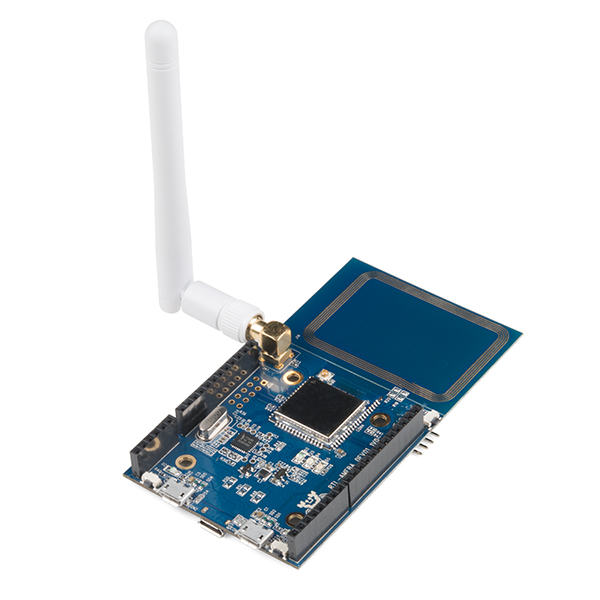
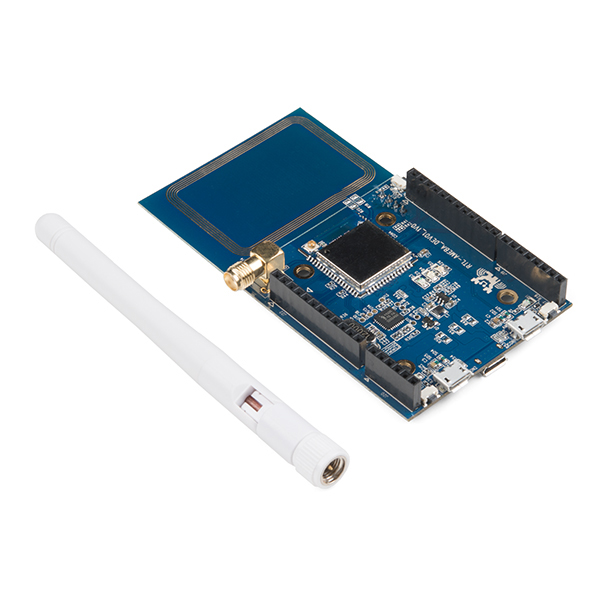
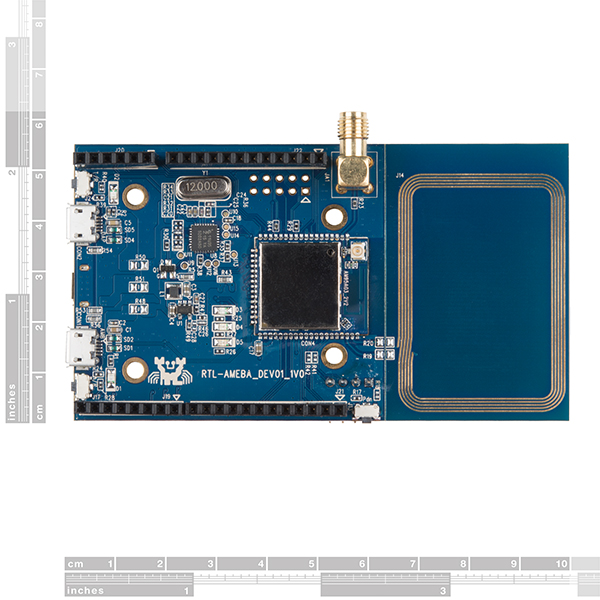
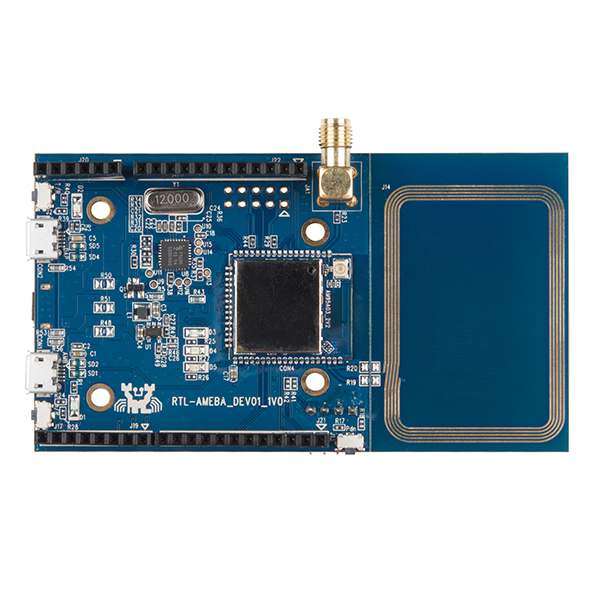
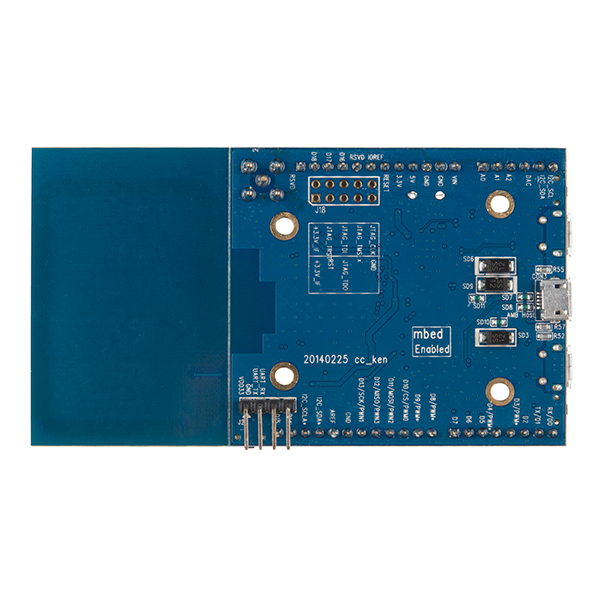
I'm the Realtek representative. Please check our forum. as below link, for more information. You may ask questions there. Our online AE will feedback to you very soon.
https://www.amebaiot.com/questions/
Power consumption stats? I’d like to compare this to the Omega 2+.
What is in the ROM and what Flash has it?
I am finishing a Universal board for RTL modules (starter kit)
It will accept many module´s manufactures! Arduino compatible! And it will accepts too RTLduino.
If sparfun is interested to be a partner and make and assembly this pcb, let me know! tcpipchip@hotmail.com
Wow! There is a LOT going on in this board for the price! Let's hope people can actually get this to work, and build a decent community around, unlike the Orange or Banana Pi.
I would welcome a separate page... rather like your guide to buying Arduinos... comparing this to the two Sparkfun ESP8266 "Things" (re-branding one of them to make it more clear that there ARE two would be an idea), and to an Arduino with the ESP8266 "add-on" ( WiFi Module - WRL-13678), plus anything else along those lines.
I "get" that the Ameba has more memory than the oft criticised measly provision in the "Thing". I was lying patiently in wait, hoping for a new improved "Thing" (which I love, by the way. Hence my work on the pages of tutorials advocating it) with more memory. I note with disappointment that you don't mention the criticized limited memory on the "Thing- Dev Board's" main page.